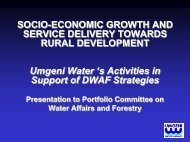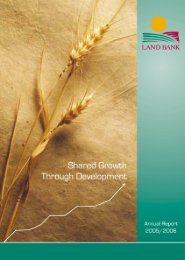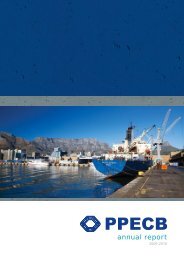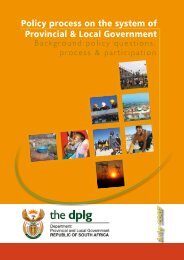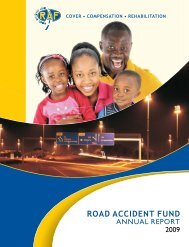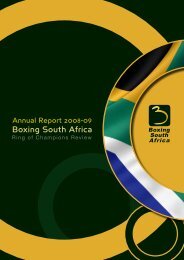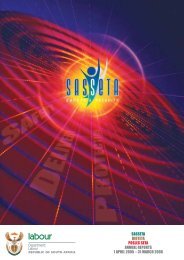Academy of Science South Africa 2005/6 Annual Report
Academy of Science South Africa 2005/6 Annual Report
Academy of Science South Africa 2005/6 Annual Report
- No tags were found...
Create successful ePaper yourself
Turn your PDF publications into a flip-book with our unique Google optimized e-Paper software.
ASSAfProgramme 3Implementation <strong>of</strong> the evaluation process: ASSAf recently held a Double Symposium on evidencebasedadvice (see 3.7). The goal <strong>of</strong> the Symposium was to bring <strong>South</strong> <strong>Africa</strong>n scientists and nationalpolicy makers together for a dialogue on the potential role <strong>of</strong> science academies in supportinggovernment decision making. The Symposium was aimed to provide opportunities for relationshipbuilding, networking and shared learning on the potential for evidence-based advice to inform <strong>South</strong><strong>Africa</strong>’s most significant public policy challenges. To evaluate success towards achieving its goals in theSymposium, evaluation forms were handed out to those who attended in order to obtain useful guidanceon shortcomings <strong>of</strong> the approach. A similar evaluation form was handed out during an IAP-supportedinternational workshop on science teacher education organised in Gauteng by ASSAf staff. ASSAf hasthus begun to implement monitoring and evaluation systems in its activities.Ms Rudzani Ramaite is the designated monitoring and evaluation <strong>of</strong>ficer within ASSAf, reporting toDr Xola Mati as Projects Director and Pr<strong>of</strong> Wieland Gevers (MASSAf) as Executive Officer.Lessons learned, and recommendations to other ASADI participant <strong>Africa</strong>n science academiesThe first year <strong>of</strong> the ASADI partnership has brought home the following:Careful attention has to be given to the balance between an <strong>Academy</strong> (as reflected by its seniorscholarly membership/fellowship, together with its <strong>of</strong>ficial governance organ, the Council) on theone hand, and the <strong>Academy</strong> <strong>of</strong>fice (with its Executive Officer, Projects/Programmes staff and other<strong>of</strong>ficers fulfilling a variety <strong>of</strong> essential functions) on the other. Enthusiastic and capable staff maysucceed in driving the <strong>Academy</strong> agenda and business, and are indispensable for success, but theCouncil (<strong>of</strong>fice-bearers) and <strong>Academy</strong> members/fellows must play a very active leading role for theraison d’etre <strong>of</strong> an <strong>Academy</strong>’s niche in a country’s science system to be realised. Real authority flowsfrom the independence, the high scholarly quality and the multi-disciplinarity <strong>of</strong> an <strong>Academy</strong>, and cantherefore be successfully and legitimately applied to addressing national problems. Fostering a goodbalance between <strong>of</strong>fice effort and the broad “<strong>Academy</strong>” is a fundamental requirement.60 Promoting Excellence in <strong>Science</strong> for Society


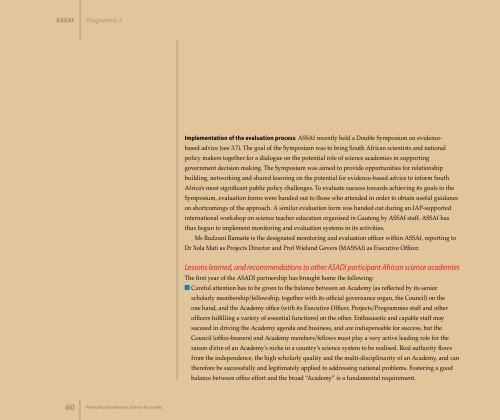
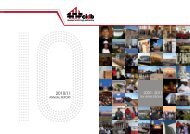
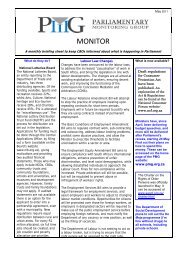
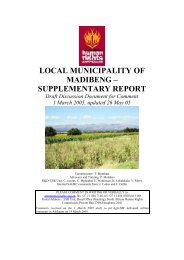
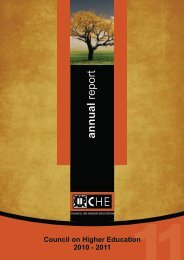
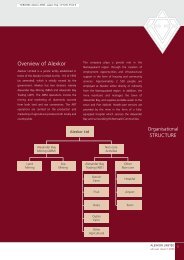
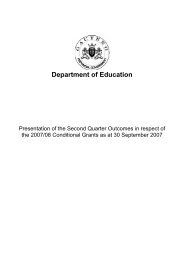
![National Research Foundation Annual Report 2008 / 2009 [Part 2]](https://img.yumpu.com/49774036/1/177x260/national-research-foundation-annual-report-2008-2009-part-2.jpg?quality=85)
